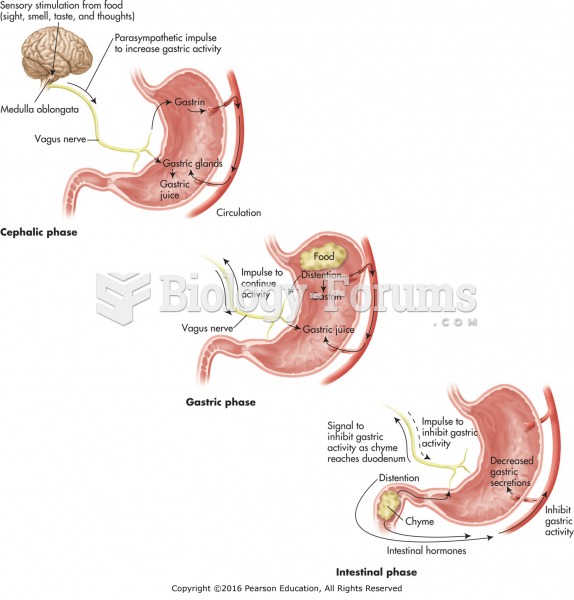|
|
|
If all the neurons in the human body were lined up, they would stretch more than 600 miles.
According to the Migraine Research Foundation, migraines are the third most prevalent illness in the world. Women are most affected (18%), followed by children of both sexes (10%), and men (6%).
Nearly 31 million adults in America have a total cholesterol level that is more than 240 mg per dL.
Looking at the sun may not only cause headache and distort your vision temporarily, but it can also cause permanent eye damage. Any exposure to sunlight adds to the cumulative effects of ultraviolet (UV) radiation on your eyes. UV exposure has been linked to eye disorders such as macular degeneration, solar retinitis, and corneal dystrophies.
The ratio of hydrogen atoms to oxygen in water (H2O) is 2:1.







